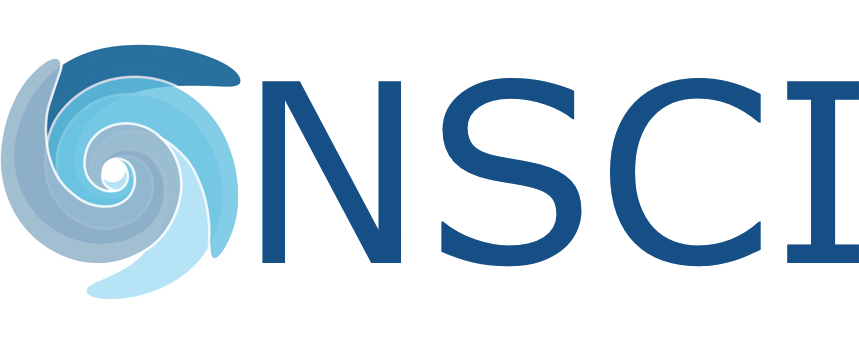Thomas Kiehl, Ph.D.
Dr. Thomas Kiehl holds a Ph.D. in Multidisciplinary Science (with a focus on biotechnology) and an M.S. in Computer Science. Prior to returning to university to pursue his Ph.D., Dr. Kiehl accrued 11 years of service with General Electric, the bulk of that time at GE’s Global Research Center in their Computational Intelligence Lab. Dr. Kiehl has a history of multidisciplinary work bridging numerous domains within biology, biotechnology, computer science, engineering, and finance. He has demonstrated success in applying modeling, simulation, computational intelligence, evolutionary computing and machine learning techniques in each of these domains. He has experience in building information systems to support related projects. Furthermore, his training in biology gives him a first-hand understanding of the bench and the biologist’s relationship with data. Dr. Kiehl brings a unique combination of training and experience that allows him to act effectively to apply computing and information technologies within the context of biological research. His experience in a variety of domains makes him an asset to projects requiring communication and management of technical information.
Dr. Kiehl’s Contributions to Science
A growing body of Dr. Kiehl’s publications documents the importance of time-series expression analysis across multiple biological domains. Publications from his graduate work focused on key factors in the biotechnological production of antibodies from engineered cell lines. His current work in time-series expression analysis has sought to extract key patterns of expression during stem cell differentiation, reprogramming, and aging of neuronal systems. While engaging these specific concepts, he worked with collaborators to conceptualize a broader path of integrative gene expression analysis as they look to glean even more biological information from the combination of disparate gene-expression datasets. Another area of his research involves the integration of other domain-specific information in the analyses of cell-lineage data and other phenotypic information.
- Apostolopoulou M., Kiehl T.R., Winter M., De La Hoz E.C., Boles N.C., Bjornsson C.S., Zuloaga K.L., Goderie S.K., Wang Y., Cohen A.R., Temple S. (2017) Non-monotonic Changes in Progenitor Cell Behavior and Gene Expression during Aging of the Adult V-SVZ Neural Stem Cell Niche. Stem Cell Reports, 9(1), pp1931-1947.
- Saini J.S., Corneo B., Miller J.D., Kiehl T.R., Wang Q., Boles N.C., Blenkinsop T.A., Stern J.H., Temple S. (2017) Nicotinamide Ameliorates Disease Phenotypes in a Human iPSC Model of Age-Related Macular Degeneration. Cell Stem Cell, 20(1), pp635-647.
- Shen D., Kiehl T.R., Khattak S.F., Jian Li..Z., He A., Kayne P.S., Patel V., and Sharfstein S.T. (2010) Transcriptomic responses to sodium chloride-induced osmotic stress: A study of industrial fed-batch CHO cell cultures. Biotechnology Progress, 26(4), pp. 1104-1115.
- Kiehl T.R., Bergeron C. (2010) Imagining a broader conceptual context for microarray analysis: A global network space of biochemical interactions. 5th Annual NYAS Machine Learning Symposium, New York, NY USA.
Dr. Kiehl worked with various collaborators on applications of computational intelligence, evolutionary computing, and pattern discovery across a variety of domains. These techniques, applied in the context of a domain can be powerful tools for discovering key behaviors and modes of systems under study. They have used these tools to impact the design of antifouling surfaces, synthetic biochemical reaction networks, and chemical catalysts. Applications of pattern detection have allowed for detection of faulty power generation equipment and of fraudulent financial filings by publicly traded companies.
- Davis R., Blenkinsop T., Borden S., Charniga C., Lederman P., Frye A., Aguilar V., Zhao C., Naimark M., Kiehl T., Temple S., Stern J. (2016) Human RPE stem cell-derived PRE preserve photoreceptors in the royal college of surgeons rat: method for quantifying the area of photoreceptor sparing. Journal of Ocular Pharmacology and Therapeutics, 32(5), pp. 304-309.
- Graham M.V., Mosier A.P., Kiehl T.R., Kaloyeros A.E., Cady N.C. (2013) Development of antifouling surfaces to reduce bacterial attachment, Soft Matter, 9(27), pp. 6235-6244.
- LaComb, C. A., Interrante, J.A., Kiehl, T.R., Senturk-Doganaksoy, D., & Hoogs, B.K. (2009). Method and system for predicting turbomachinery failure events employing genetic algorithm. US Patent # 7,627,454.
- Kiehl, T.R. (2009). Evolving Biochemical Reaction Networks with Stochastic Attributes. Proceedings of Genetic and Evolutionary Computation Conference/Late Breaking Papers 2006.
- Hoogs, B.K., Kiehl, T.R., LaComb, C. & Senturk, D. (2007). A Genetic Algorithm Approach to Detecting Temporal Patterns Indicative of Financial Statement Fraud. Intelligent Systems in Accounting, Finance & Management. 15(1-2): 41-56.
- Kiehl, T.R., Mattheyses, R.M. & Simmons, M.K. (2004). Hybrid Simulation of Cellular Behavior. Bioinformatics, 20(3):316-322.
- Cawse, J.N., Mattheyses, R.M., Hansen, C.H. and Kiehl, T.R. (2004) High throughput screening method and system. US Patent Application # 20040161785.
A developing area of Dr. Kiehl’s research looks to further refine the use of multielectrode arrays (MEAs) for the characterization of stem cell-derived neuronal cell cultures. His work in this domain looks to address key questions in the design of MEAs, and the development of analytical techniques to enable the characterization of neuronal networks as they develop under various conditions from a variety of primary and progenitor cell types.
- (Under Review) Stone, T., Kiehl, T.R., & Bergeron, C. Identification and assessment of systematic measurement error on electrophysiological recordings of neural cell cultures.
- Khawaja, U., Stone, T., Morkowchuk, L., Kiehl, T. R., & Bergeron, C. (2014). Graph theoretic characterization of in vitro neuronal network development. BMC Neuroscience, 15(Suppl 1), P207
- Stone, T., Khawaja, U., Perko, N., Kiehl, T. R., & Bergeron, C. (2014). Best practices for avoiding dominant experimental bias in analysis of multielectrode array signals. BMC Neuroscience, 15(Suppl 1), P208.
- Kiehl T.R. (2011) Inferring computational function of neuronal networks from multi-electrode array recordings: an evolutionary approach. BMC Neuroscience, 12(Suppl 1), p.167.
A complete list of Dr. Kiehl’s publications can be found on the NCBI website.

